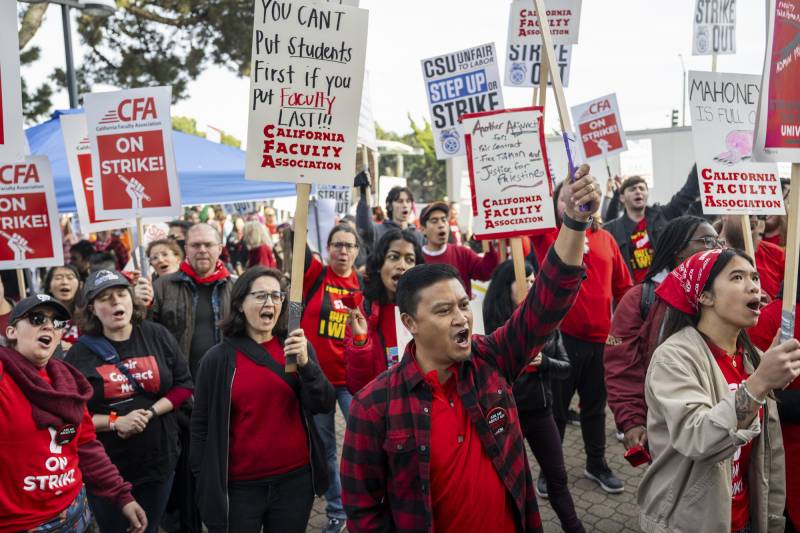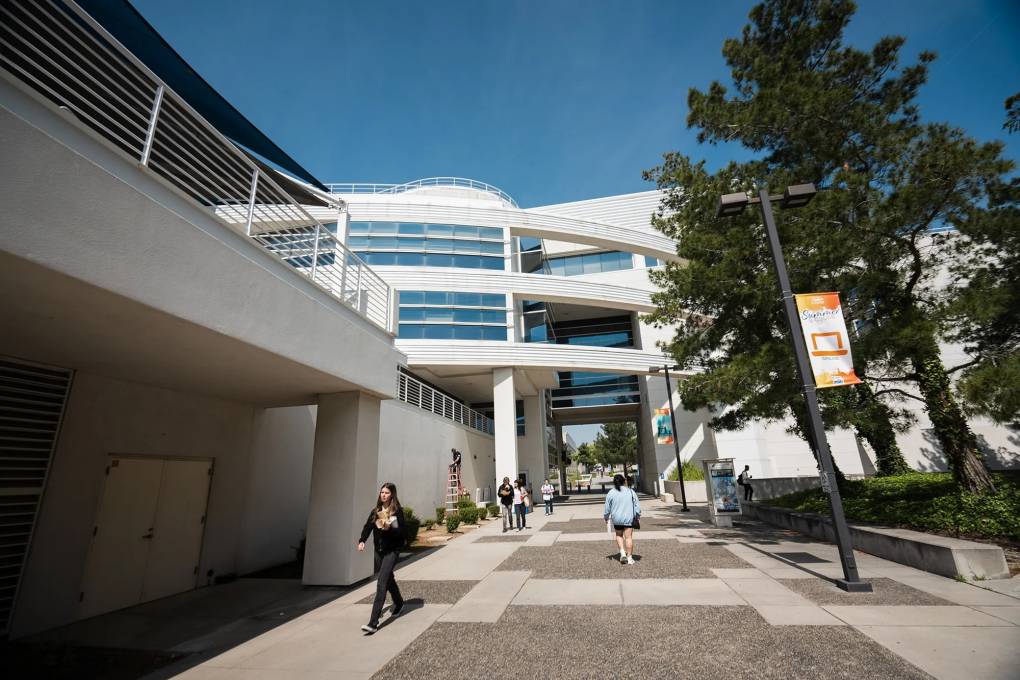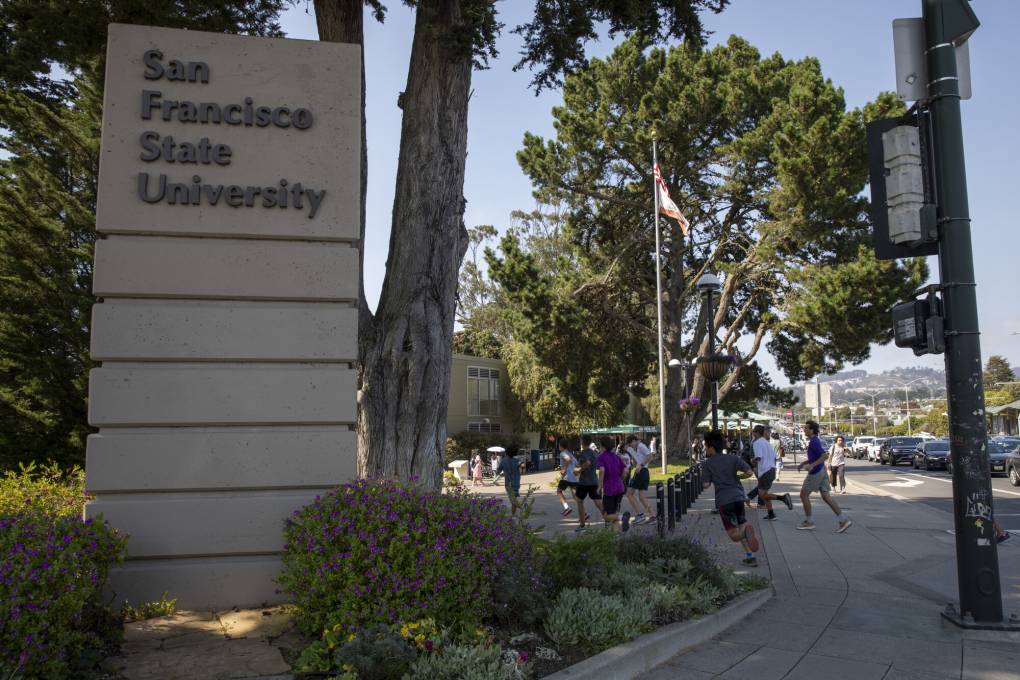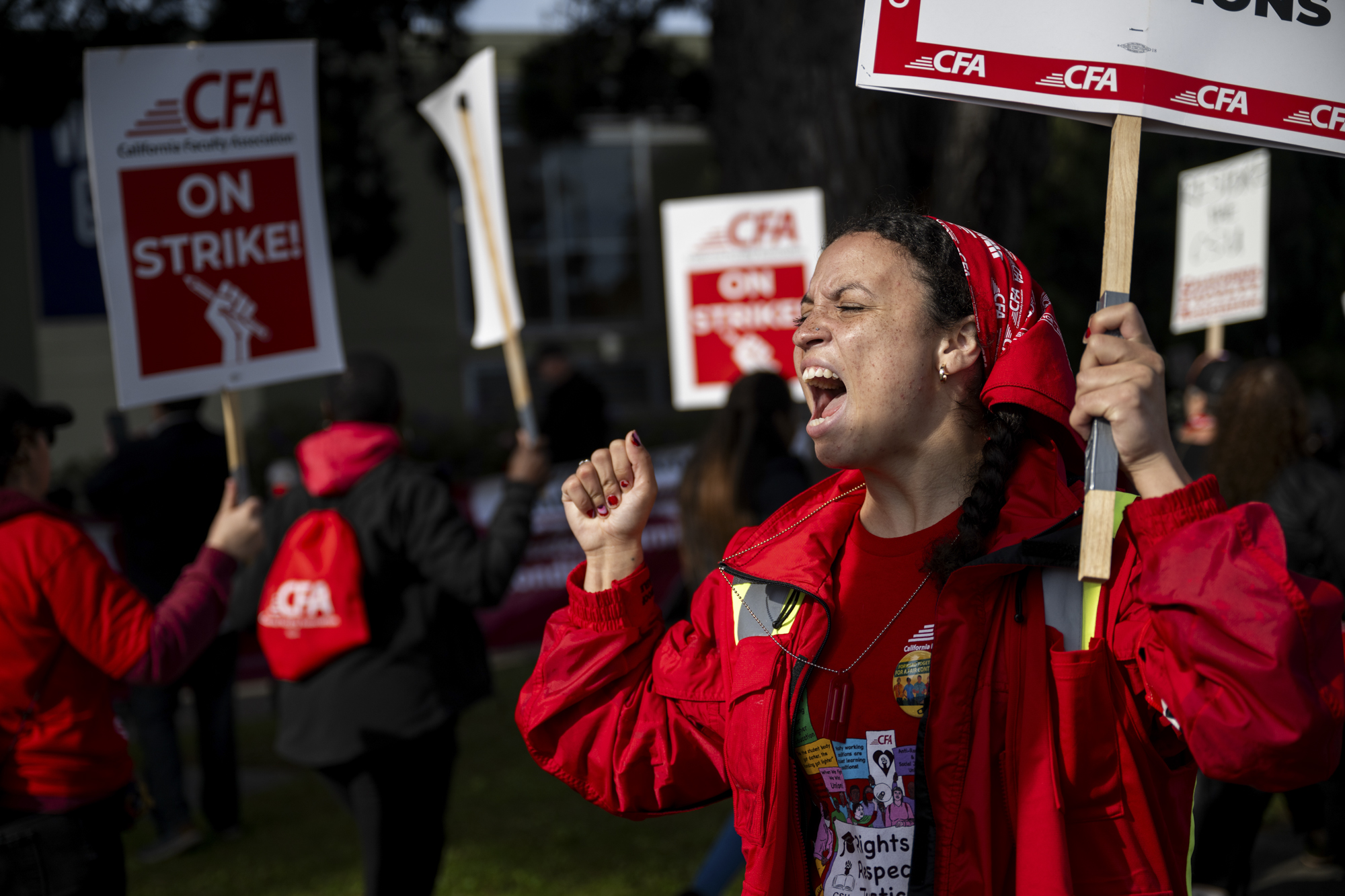San Francisco State University faculty held a single-day strike on Tuesday, demanding significant pay increases, amid the looming threat of widespread layoffs and hundreds of class cuts across campus.
Hundreds of faculty members, including professors, librarians, counselors and coaches, gathered on the campus alongside some of their students, holding signs and shouting chants as passing cars honked in support.
“When education is under attack, what do we do?” one strike leader called out. “Stand up, fight back!” the crowd responded.
The action is the second in a series of one-day strikes at four California State University campuses this week, with Cal Poly Pomona faculty kicking things off on Monday. CSU Los Angeles faculty plan to strike on Wednesday, followed by Sacramento State faculty on Thursday.
The California Faculty Association, which represents some 29,000 CSU employees, is demanding a retroactive 12% salary hike for the current academic year, more manageable workloads and an increase in parental leave — from six weeks to a full semester.
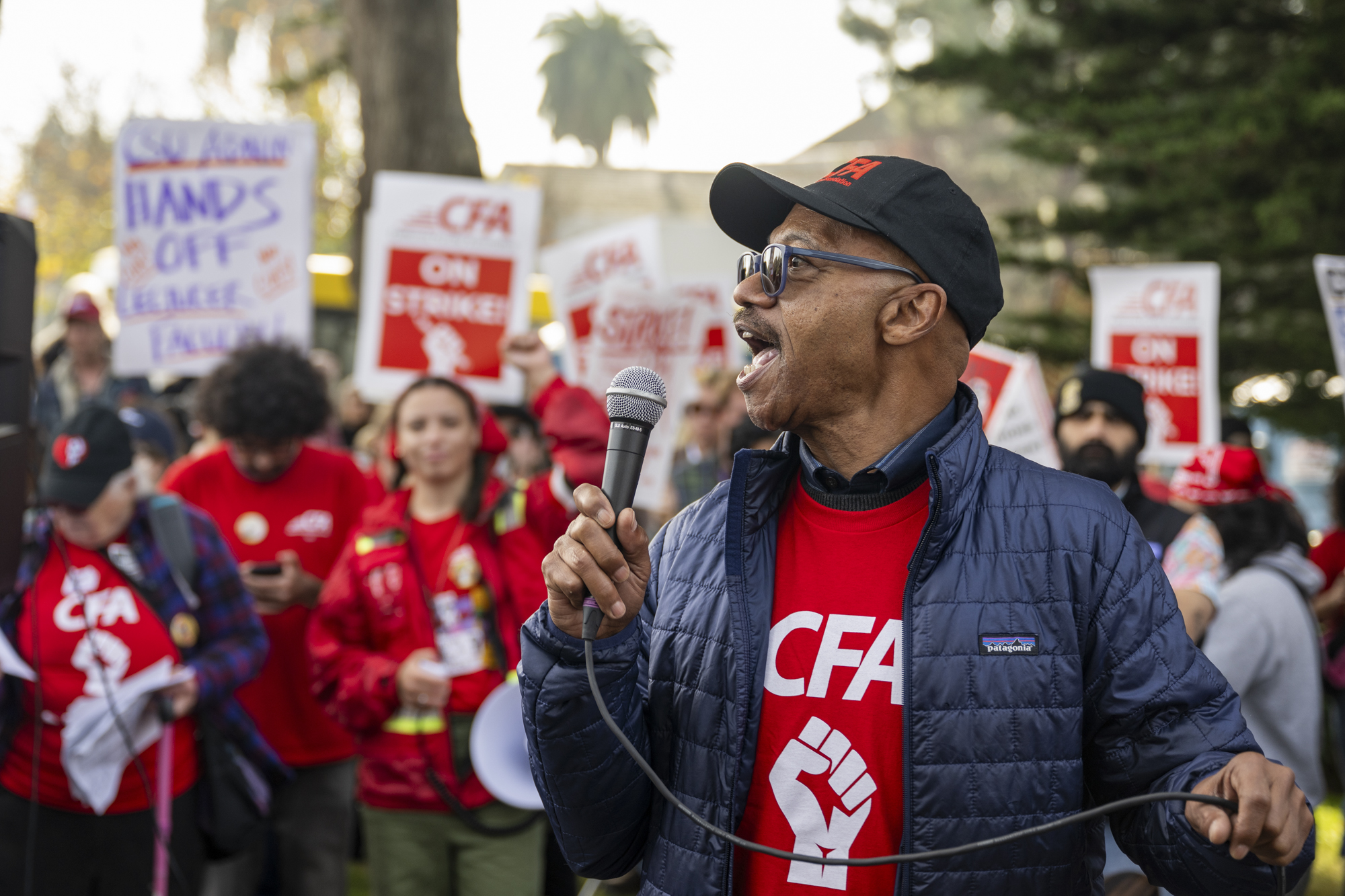
The work stoppages come after months of fruitless negotiations between the union and university system administrators, who have held fast to their offer of a 5% increase.
And neither side accepted some of the key terms that an independent fact finder recommended last week — including a 7% pay hike — in a final effort to avert a strike.
Blanca Missé, an associate professor of French at SF State, blamed administrators for failing to seriously consider the union’s demands, noting that a 5% pay increase would not even cover inflation.
